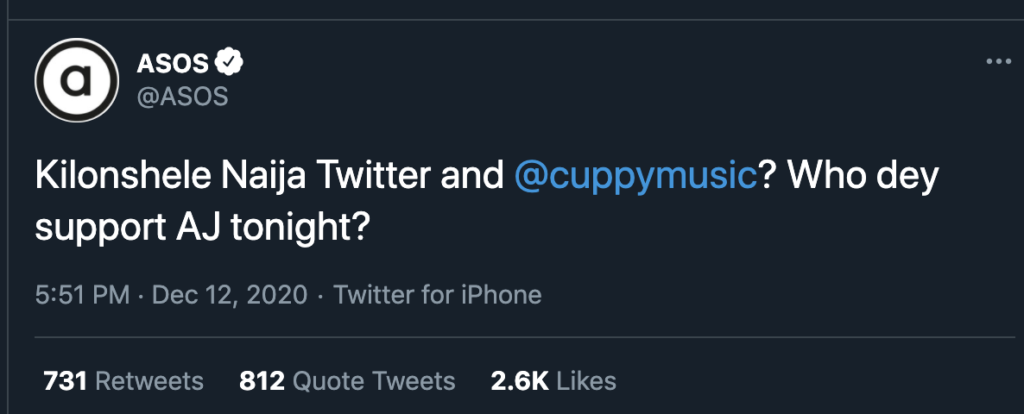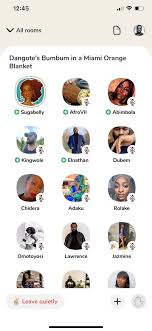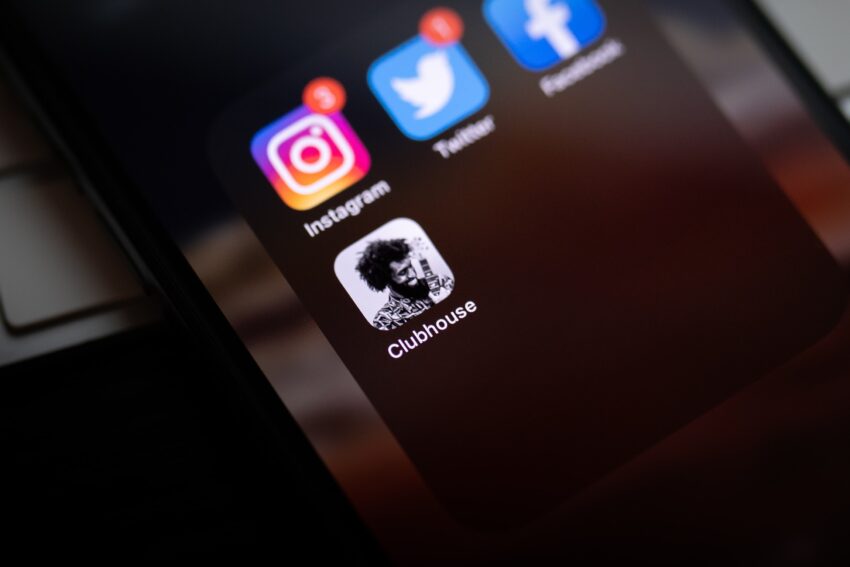I’m endlessly fascinated by Nigerians.
In my work in marketing, I am keenly aware of how differently countries can respond to the same idea and how much Nigerians, while perhaps not always the earliest adopters, can really be the most effusive and intense adopters of ideas and communities. So much so, that it has become a running joke on Twitter, that global brands seeking to grow their reach and engagement have hacked that the way to do this is to engage with Nigerian content and culture (ASOS for example (in)famously did this in 2020).

Right now, this is playing out very heavily with Clubhouse: the audio based app (still in beta-testing) that allows users from across the globe to verbally interact in different chat rooms based on whatever topic is decided by the chat room’s moderators. A good mental picture would be to think Zoom meets a live podcast or perhaps more simply, if Twitter came to life.
With topics ranging anywhere from “Nigerian women ask Nigerian men hard questions,” to “Why do fools fall in love,” “diaspora wars,” and a viral clubhouse chat room that had the salacious title “Dangote’s bum bum,” Clubhouse is fast becoming the hottest new social app and no one is having more fun with it like Nigerians are. It also helps that Clubhouse seems to be taking note of this and appears to be giving more invites to Nigerians than many other countries are getting.

When you think about it, it makes perfect sense that Nigerians are embracing Clubhouse so heavily. First, there’s the sheer population of the country and how enthused the average Nigerian is about social media– I have a hypothesis that given our economic climate, social media provides an outlet for escapism for many Nigerians. But beyond this, Clubhouse currently has many of the features that Nigerians not only understand but can get behind: there’s the exclusivity factor which bestows some elitism/class strata on the people on Clubhouse so in this sense, it’s a positional good that’s enjoyed even more because it’s not possessed by others (sorry Android users). There’s also the fact that right now there are so many successful, high-ranking people that are active in Clubhouse that are easier to connect with and potentially leverage through this platform than anywhere else.
Monetization or the possibilities of this has also been on everyone’s lips recently: how would clubhouse keep influencers and creators engaged on its platform? Would it be tipping? Could music distribution platforms like Spotify and Apple music be a path to monetization seeing how heavily invested they already are in the podcast industry? Would they be building a subscription model or even integrate with e-commerce? Would Clubhouse sell advertising space on its hallway or even atop club rooms?
While we wait to see what direction Clubhouse chooses to go in, there are already opportunities for marketers to utilize the platform.
So what are some ways that marketers can use Clubhouse?
- Build personal brands for founders/company executives: Since Clubhouse is centred around sharing perspective and thought leadership, one major way that brands can take advantage of the platform is to promote the establishment of high level company executives or founders with some charisma or charm who can build communities online, rinse reputations/PR crisis, get people to see a dimensionality to your brand that is way harder to relay through posts and captions and transfer that affinity to the brand.
- Sponsor conversations and get mentions: There are also opportunities to find creators or contributors who speakon subjects that attract communities that fall into your target market to get plugged in. Rooms set up to talk about hair scams for example can be channeled by reputable hair vendors to plug their merchandise and establish some credibility. You could also just start your own and if the title is catchy enough, people will give the room a go.
- Host Giveaways: Similar to sponsoring conversations, facilitating giveaways is another way to get people in a room engaging and open to learning more about your brand.
- Recruitments: Given that unemployment is perhaps the biggest economic problem in Nigeria, using Clubhouse as a channel to source talent is perhaps the most inexpensive, high reach strategy for businesses and brands to grow their audience, engage across platforms and build love.
One thing that will really be exciting to see is how Clubhouse will sustain and grow when the world returns to “normalcy.” With the pandemic in full swing and many countries either in lockdown or steeply restricted, Clubhouse was made for such a time as this. But how many of our current routines will survive in a post pandemic world? With the hustle and bustle of daily life back to its craziness, will we continue to enjoy coming together as a community online? It’ll be interesting to hear some predictions but for now, I’m personally averaging 35% more hours on Clubhouse than any other app, so if I was a betting woman, my odds will be stacked on Clubhouse being around for a long time.


Quite enlightening. I’m interested in seeing who will jump into the fray first, meaning which company or who will create a marketing pitch first and gain that advantage.
I think it’s a micro-influencer haven.
Super insightful, waiting to see where clubhouse goes from here, next move would ultimately make or break as normalcy returns, could also set them up to be the next big thing outside the box!